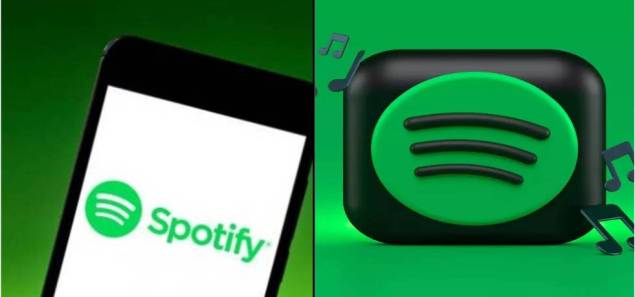There are people, like Spotify, who don’t like how Apple has chosen to follow the EU’s Digital Markets Act (DMA). This law allows sideloading apps, different app shops, browser choice, and other things. The streaming music service responded to Apple’s new DMA rules on Friday. They called the new fees developers have to pay “extortion” and Apple’s plan to follow the rules “a complete and total farce,” which shows the tech giant doesn’t think the rules apply to them.
In the beginning of the week, Apple revealed a number of changes that are in line with EU law, if not its spirit. The company said that app developers in the EU would get lower fees, but it also added a new “core technology fee” that developers must pay €0.50 for every first annual install over a million, no matter how they got the app to users. It will also charge developers 3% more to handle payments when they use Apple’s in-app payments instead of their own.
Epic Games sued Apple over trade issues, and Tim Sweeney, CEO of Epic Games, already spoke out against Apple’s plan, calling it “malicious compliance” and full of “junk fees.” Now, Spotify is pretty much saying the same thing.
Along with Epic, Match, and other companies, the streamer has been critical of the tech giant for a long time and has pushed for stricter rules, including through the DMA.
Daniel Ek, CEO of Spotify, wrote about Apple’s DMA news in a company blog post and a series of posts on X (formerly Twitter). He did this after having his lawyers look over the announcement. The first thing he says is that the news is “at best vague and misleading” and a “new low for the company.”
Ek says that Apple’s answer is a “masterclass in distortion” because it gives app developers two options: they can stick with the current terms or switch to a “convoluted new model” that might look good at first but may cost more in the long run. He says that any app with tens or hundreds of millions of users in the EU would now have to pay a new tax on every new download and update every year. This would affect Spotify’s app as well as WhatsApp, Duolingo, X, and Pinterest.
It’s clear that the system is meant to stop apps from using other ways to get downloaded, like sideloading or finding their own app shops. Customers won’t be interested in these other outlets as much, though, if they don’t offer the big apps. Ek thinks that Apple’s App Store will keep its popularity.
In addition, Ek says that Spotify doesn’t even have a choice because of the higher fees—it has to keep things the same.
“Spotify itself is in a bad position,” he writes. “With around 100 million Apple installations in the EU, this new tax on downloads and updates could make it ten times more expensive for us to get new customers.” This is because we have to pay for every update or install of our paid or free app, even for people who no longer use the service. Now what do we do? If we want to stay in business and make money under the new rules, we can’t pay these fees, so we have to keep things the same. “The thing we’ve been fighting against for five years,” says Ek.
At the end, he challenges lawmakers, saying that he hopes they see what Apple is doing and stand strong, and that they “do not let all their work over the years be for nothing.” The whole world is looking at you, Ek writes.
Epic Games and the Coalition for App Fairness (CAF), a lobbying group made up of Epic, Spotify, Tile, Basecamp, Match, Deezer, and dozens of smaller companies, both said they didn’t like Ek’s letter. An group said on Thursday that Apple’s new fees on direct downloads and payments that they don’t handle are against the law and don’t make the digital market more competitive or fair.
Read More: Because of the Eu’s Guardian Rules, Apple is Adding a New “core Tech” Fee for Apps
“Apple’s proposal forces developers to choose between two illegal and anticompetitive options,” CAF’s Executive Director, Rick VanMeter, said in a statement. “Either put up with the awful way things are now or agree to a new set of terms that are hard to understand and hurt both developers and customers.” This is another effort to get around rules, like the ones that happened in the US, the Netherlands, and South Korea. Apple’s “plan” is an open insult to the European Commission and the millions of consumers they serve in Europe. It can’t stand, and the Commission should turn it down.
Mozilla has also spoken out against Apple’s new browser rules, saying they are “as painful as possible.”
What do you say about this story? Visit Parhlo World For more.


